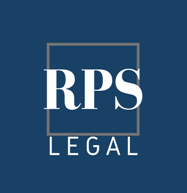If you are interested in starting a business, startup, branch, or subsidiary, understanding the different available types of legal structures in the Netherlands is crucial for success in the Dutch market.
When investing in the Netherlands, one may opt for business structures with or without legal personality. These operating modes are all different from each other and each has its advantages and less attractive parts.
Table of Contents
Sole proprietorship in the Netherlands
If you open a company in Netherlands you may choose to set up a Sole Proprietorship, being the most common type of structure in this country. You must be aware that, by opening a sole proprietorship, as the single owner, you have unlimited liability. This means that the owner is liable for all debts of the company. The owner is also the one that provides the capital for the company. The advantage of this type of business is that the company’s decisions can be taken only by it’s owner, being also the single person who can benefit from the company’s profit. After the company is registered, you should also take into account that the company must be registered for VAT in the Netherlands.
| Quick Facts | |
|---|---|
| Main types of structures in Netherlands |
– public limited company (NV), – private limited liability company (BV), – partnership (VOF), – cooperative, – foundation, – sole proprietorship |
|
Foreign entities in Netherlands |
– branches, – subsidiaries, – representative offices |
|
Minimum share capital |
– €0.01 for BV, – €45,000 for NV |
| Bank account required for share capital (YES/NO) | YES |
| General steps to open a company |
– decide legal structure, – choose trading name, – register with the Dutch Business Register and Tax Administration, etc. |
| General required documents |
– Articles of Association, – application form, – details of directors & shareholders, – company description, – ID documents, – proof of registered address, – proof of deposited capital, etc. |
| Special licenses and permits |
For specific industries (hospitality, healthcare, gambling, transportation, construction, etc.) |
| Corporate income tax rate |
– 25.8% (standard), – 19% (reduced for annual income less than EUR 200,000) |
| Personal income tax for sole traders |
Progressive rates, based on earned income. Our Dutch lawyers can give you the exact rates. |
| VAT registration in Netherlands | Mandatory for all taxable activities in Netherlands, but exceptions apply to the small businesses scheme (KOR). |
| VAT rates |
– 21% (standard), – 9% & 0% (reduced) |
| Minimum shareholders required |
– 1 for BV and NV, – 2 for cooperatives |
| Virtual office possibility (YES/NO) |
YES |
| Remote company formation (YES/NO) |
YES |
| Assistance | Our Dutch law firm can help interested entrepreneurs select the right business structure and help in the incorporating process. |
Partnerships in the Dutch business market
A Partnership (VOF) is a bit more secure type of structure in Netherlands. Here there are two or more persons that own the business. In this structure, the business owners are jointly and severally liable for the company’s activities, including debts.
Each partner must bring his contribution in the company either in money, goods and/or manpower. The Dutch law does not require a partnership contract, but drawing up this contract before a public notary can become an essential action for your company as it offers relevant information about the company’s partners, including information on the contribution of each one in the company’s capital.
Private limited liability companies
If you want security, choose to open a Private Limited Liability Company (BV). In this Dutch type of structure you are not jointly and severally liable for any debts made by the company. This is because the BV is a legal entity under the provisions of the Commercial Law. Because the money (share capital) comes from different persons, they can only lose the money invested. They buy a certain amount of shares and therefore become the company’s owners. The disadvantage of a limited company is that a higher amount of tax should be paid, and that every year there must be drawn up a list with the company’s consume of money/capital. Therefore, when you own more than 5% of the company’s shares, you own a substantial interest in the company and you must pay tax on profit of 25%. Our Dutch lawyers can help you open a BV and can also open a bank account in Netherlands for your new company.
Public limited companies in the Netherlands
A Public Limited Company (NV) is very much similar to a private company. For this type of structure in Netherlands, the names of the shareholders need not be stored in a register. The shares may even be bought by anyone or sold. This allows anyone to own a NV. The only risk you run as a shareholder is that you lose the invested money. The disadvantage of a NV is that the company can be easily acquired, because the shares are not registered and can be sold to anyone else.
Regardless of the type of company they open, investors may be interested in trademark registration in Netherlands. This can help distinguish their business.
Characteristics of cooperatives in the Netherlands
Another available type of structure in the Netherlands is the cooperative (coöperatie). This structure allows for the formation of a collective with one or more members, offering various benefits.
One advantage is the ability to distribute work among members, enabling smooth operations. Unlike commercial partnerships or professional partnerships, members can enter or leave the cooperative without threatening its continuity.
In terms of profit distribution, the cooperative allocates earnings proportionally based on the work performed by each member. The specific arrangements for profit distribution are determined by the members themselves. Additionally, members can contribute funds to the cooperative through separate member accounts, which differ from tradable shares in a BV.
It is important to note that cooperatives are not eligible to declare bankruptcy in the same way as a business entity. Our Dutch lawyers can explain more details about this type of structure in the Netherlands if you are interested in the subject.
We invite you to watch a short video about the main types of companies in the Netherlands:
How associations and foundations work in the Netherlands
An association is a group that comes together with a shared goal, and in this type of structure in the Netherlands, the main purpose is not profit. Most associations focus on organizing social activities. If an association does make any profits, those funds must be reinvested back into the association itself. It is not allowed to distribute the profits among its members. Our lawyers in Netherlands have highlighted a few important notes about associations.
An association needs to have at least two members and no shareholders. The money needed for the association’s activities comes from contributions made by its members, such as donations and fundraisers.
Associations and foundations are different types of structures in the Netherlands. While an association focuses on organizing social activities and has members who actively participate in its objectives, a foundation is primarily established to manage and distribute funds for a specific social, cultural, or charitable cause.
A foundation also does not require members, as it operates with a governing board.
If you are interested in conducting a social activity and cannot decide between a foundation and an association, contact our law firm in Netherlands for support and guidance.
Changing your business structure in the Netherlands
It is possible to change your type of structure in the Netherlands. The primary reasons for changing structures typically revolve around liability, taxes, and working with partners.
The first step in this process is deciding which new structure type fits your needs the best at the moment. Next, you need to report this new structure to the legal authorities, such as the Netherlands Chamber of Commerce (KVK) or the Tax and Customs Administration. Additionally, you might need to contact your local bank for structure changes.
Changing or obtaining new licenses and permits is also important if your company activates in business fields that require them.
It is possible to transfer the business assets of your company to the new legal structure you have chosen. These assets can include stocks as well as physical items like computers, tools, and machines.
You can consult with our attorneys in Netherlands for specific guidance on your situation.
Finally, here are some statistics about the different types of structures in Netherlands that investors might find useful:
- In 2020, there were approximately 1.9 million active companies in the Netherlands;
- The sectors that had the highest number of companies in the Netherlands in 2020 were specialized business services (374,000), trade (243,000), and construction (200,000);
- In 2019, there were approximately 260 companies with 1,000 or more employees.
Contact us for further information about the types of structures available in Netherlands and you will benefit from customized advice and support, provided by specialized Dutch lawyers. In case you need to obtain an EORI number for your new company in the Netherlands, we can help you in this matter as well.

